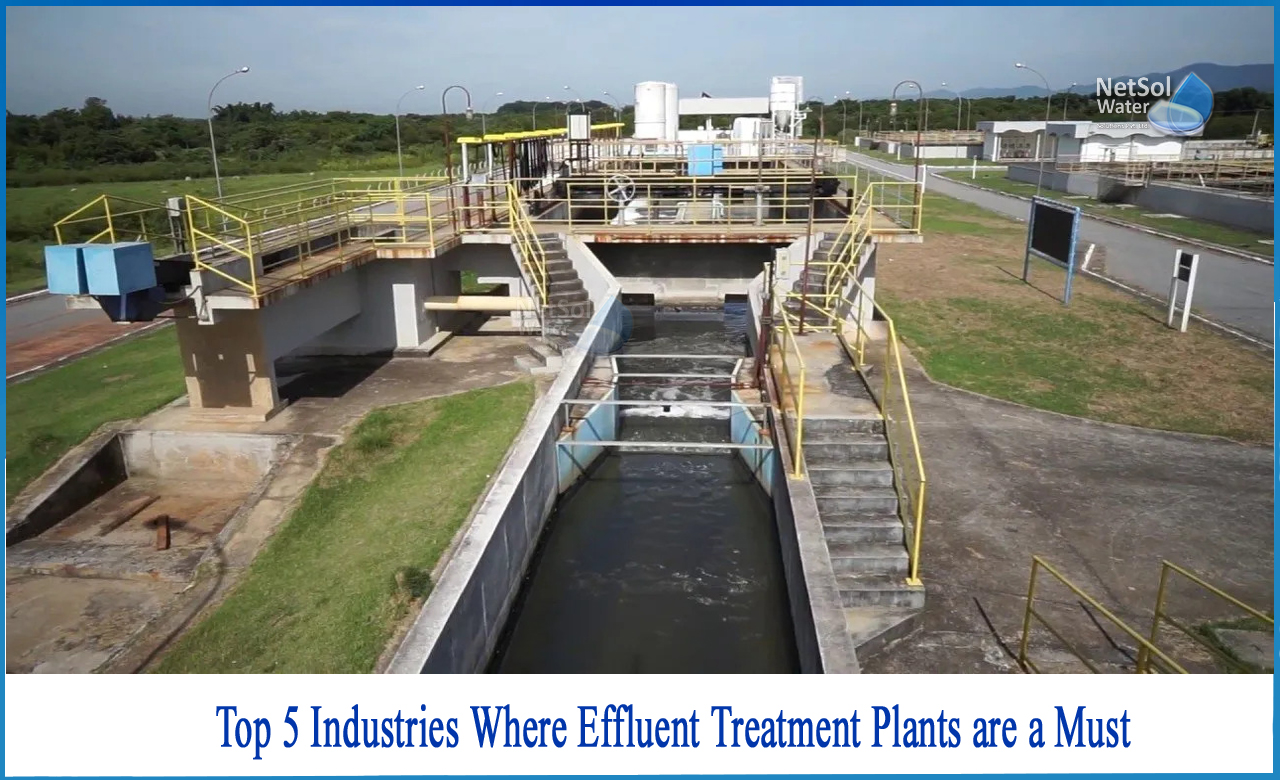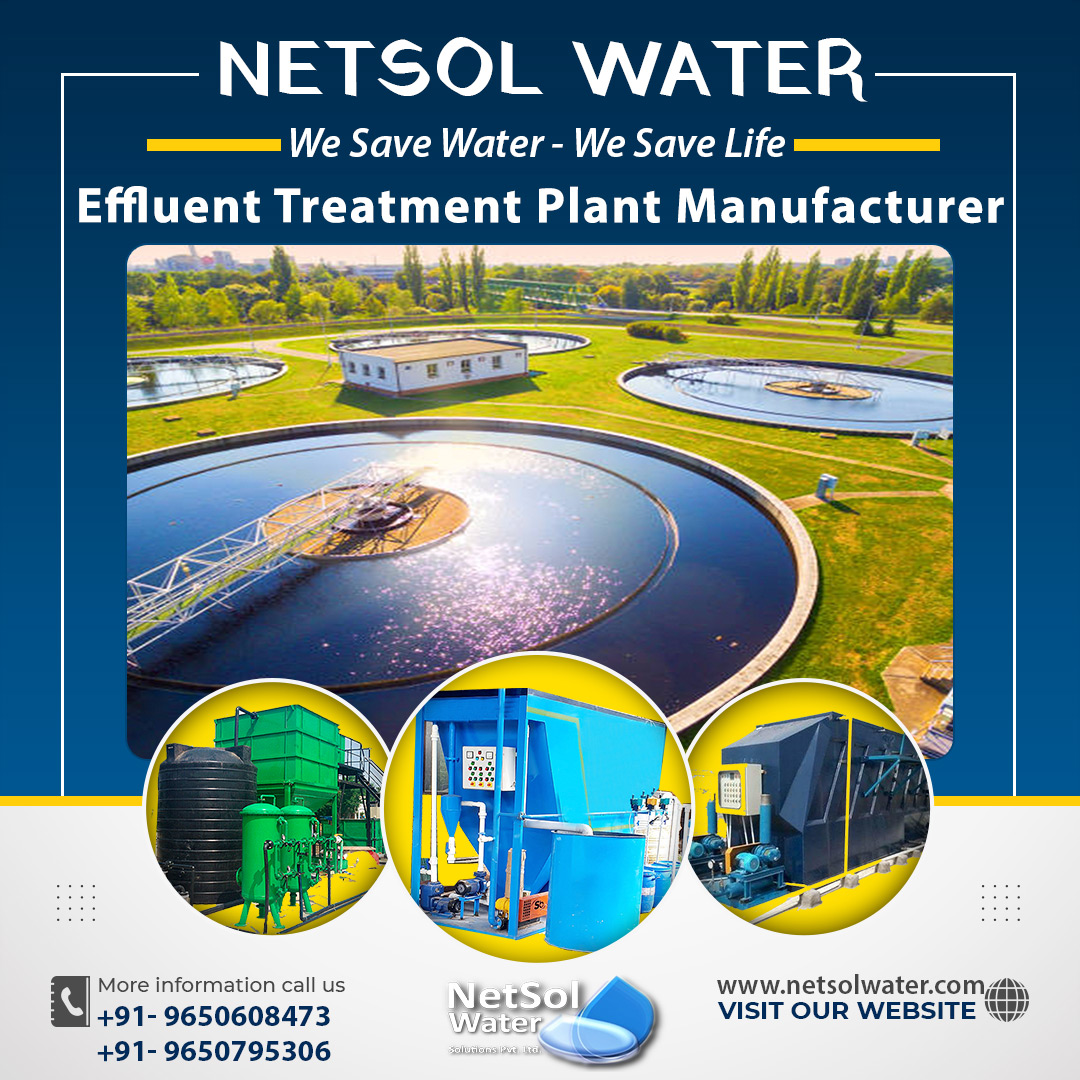Who are the Top 5 Industries where ETP are a must?
The Effluent Treatment Plant (ETP) is utilized to treat the Effluent from industries. It consists of biological, physical, and chemical processes. Its goal is to release clean water into the environment in order to keep it from being polluted. Need any further information and product requirement consult professional effluent treatment plant manufacturer.
Pre-Treatment, Screening, Grit Removal, Flow Equalization, Primary Treatment, Secondary Treatment, and Tertiary Treatment are all part of the treatment process. These plants offer clean water to the environment while also conserving water in a variety of ways.
The following industries utilize ETP to treat wastewater at its source:
Here, are some of the major industries where Effluent Treatment Plant (ETP) are manadatory to implant to purify the waste water before it gets discharged are:
- Hospitals
- Food and processing industries.
- Pharmaceutical industry.
- Textile and Paper industries.
- Automobile industries.
- Textile and dye industry.
- Dairy and Beverage industries.
1: Medicinal Plants for Hospitals
The effluent from the hospital Effluent Treatment Plant contains several radioactive isotopes, microbiological pathogens, particles of spent solutions, syringes, huge pieces of metal, and disinfectants that are potentially dangerous to human existence.For these reasons, environmentalists place a high value on hospital wastewater treatment facilities, as hospitals require a substantial amount of fresh flowing water for daily operations.
2: Plants for the Manufacturing Industry
According to the “Ministry of Environment and Climate Change” guidelines, all manufacturing companies such as electroplating and phosphate industries, paper industries, steel mills, sugar mills, dyeing industries, food & beverage industries, pharmaceutical & drug plants, tanneries, and automobiles have faced strict regulations on waste and its unregulated discharge. These wastewater treatment systems are well-known for conserving energy and eliminating pollutant effluent in a cost-effective manner. It aids in the resolution of environmental contamination concerns without exposing them to the open environment.
3: Textile manufacturing plants
The textile industry is fuelled by a complicated, massive volume of wastewater including diverse chemicals used in dyeing, printing, and finishing operations. The primary function of an ETP is to clean and recycle effluent for future use.
The basic goal of the technique is to reduce the total amount of Effluent to zero by separating water and salt using evaporation and separation technologies. Before being discharged into the environment, the effluent must fulfil the quality criteria.
4: Plants used in the pharmaceutical industry
During the manufacturing or formulation of medications, the pharmaceutical sector creates large amount of wastewater. Aerobic/anaerobic treatment, membrane filtration like RO, all perform well to remove unknown particles.
In the aeration treatment procedure, the collected water is aerated by blowing air via an air blower for a day. The wastewater is routed via a bar screen chamber, where floating particles are filtered as part of the preliminary treatment. Oils and grease, as well as hazardous compounds, are found in industrial effluents. Because industrial wastewater includes a wide range of contaminants, a treatment process known as Effluent Treatment is used. Wastewater treatment plants are necessary in the pharmaceutical sector.
5: Chemical Industry Plants
This industry produces chemical products such as petrochemicals, agrochemicals, ceramics, polymers, rubber oleochemicals, explosives, perfumes, and flavours. Water becomes harmful throughout the manufacturing process because it includes both organic and inorganic materials. As a result, wastewater must be treated before being discharged into the water cycle.In the chemical industry, effluent treatment plants (ETPs) are often used to purify processed water and remove dangerous and non-toxic substances.
Conclusion: Use of an ETP
Effluent treatment plants are used by a growing number of companies to clean wastewater. The “Ministry of Environment and Climate Change” recommended standards for purifying wastewater before reintroducing it into the water supply.
Contaminated Water has a negative influence on marine life and will disrupt the current equilibrium of fresh water on the planet. Giving fresh water back to the ecosystem is critical because freshwater availability is barely 3%.
Water becomes contaminated by a variety of external things such as chemicals, dust, organic compounds, and biological materials, which is referred to as effluent. Wastewater enters the Effluent Treatment Plants and through various procedures before being discharged into the environment. It is built in a multi-stage treatment process based on the chemical and physical properties of the effluent in industrial wastewater.
An Effluent Treatment Plant processes wastewater and can also be adjusted so that the treated water can be reused. It benefits small and medium-sized businesses by eliminating wastewater from their operations. To ensure that the sewage can flow freely, manufacturing industries treat the water for solids removal. Without effluent treatment, we will be unable to obtain fresh, drinkable, and useful water for home purposes.
What can Netsol Water provide?
Netsol Water is a significant water and wastewater treatment firm in India, offering WTP, WWTP, STP, ETP and RO Plant manufacture, among other services. The company creates equipment’s and is committed to providing practical solutions that help businesses flourish.
We are committed to providing our valued customers with hands-on service, expert counselling, and training. We can providefacilities to treat effluent from all industries, be manufacturing or processing.




